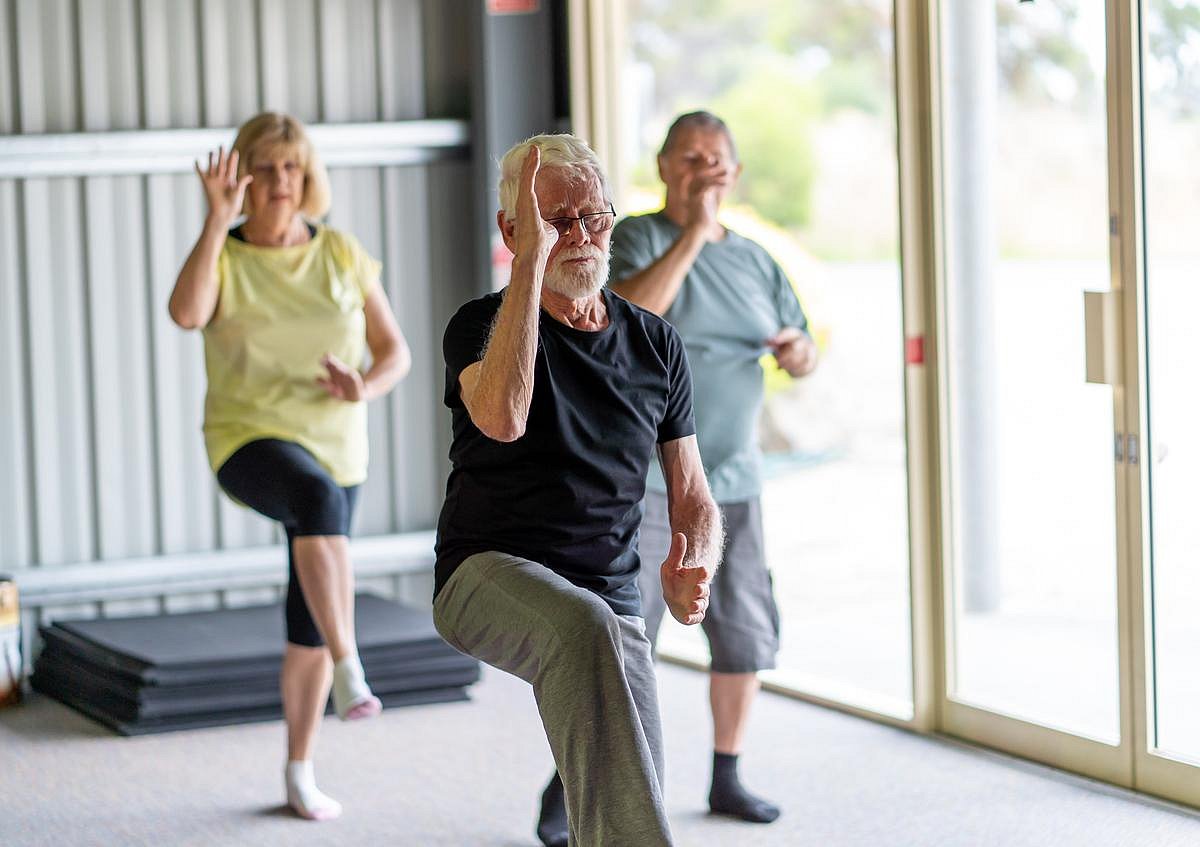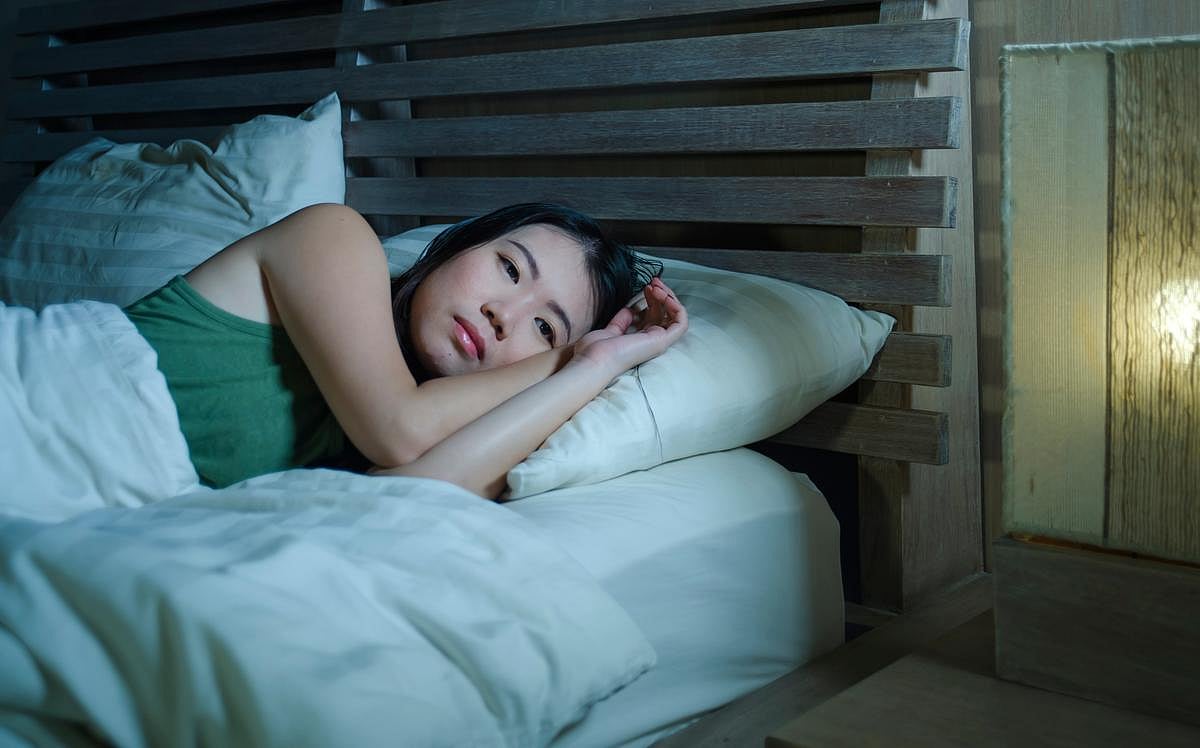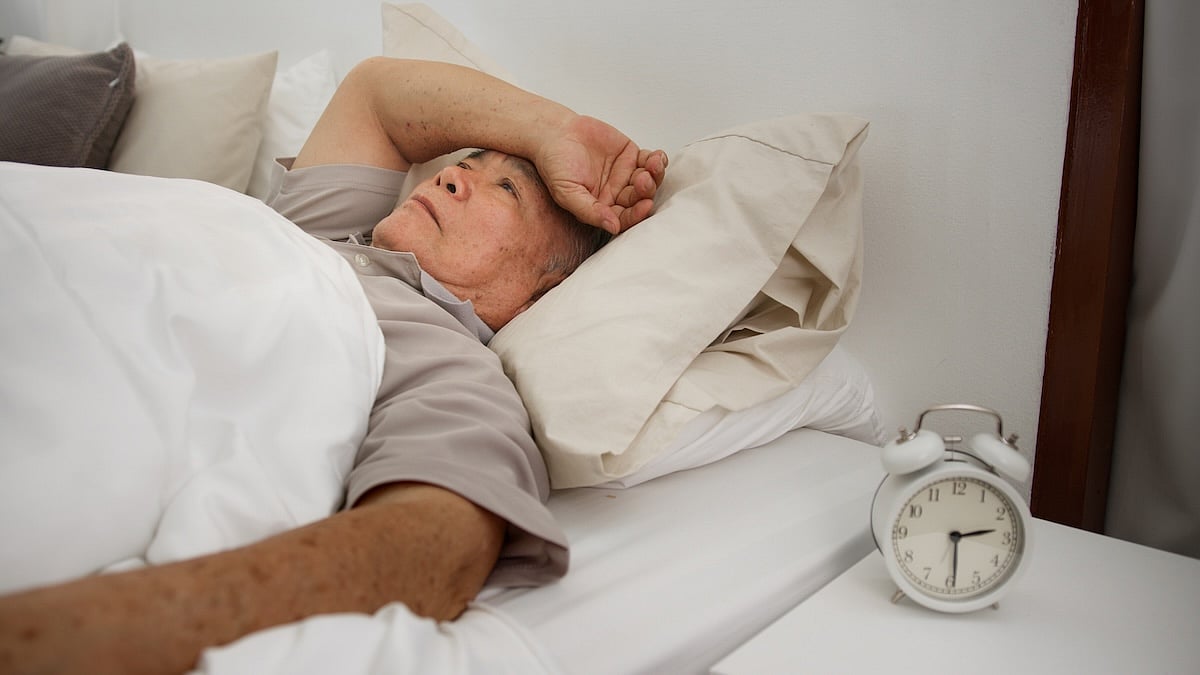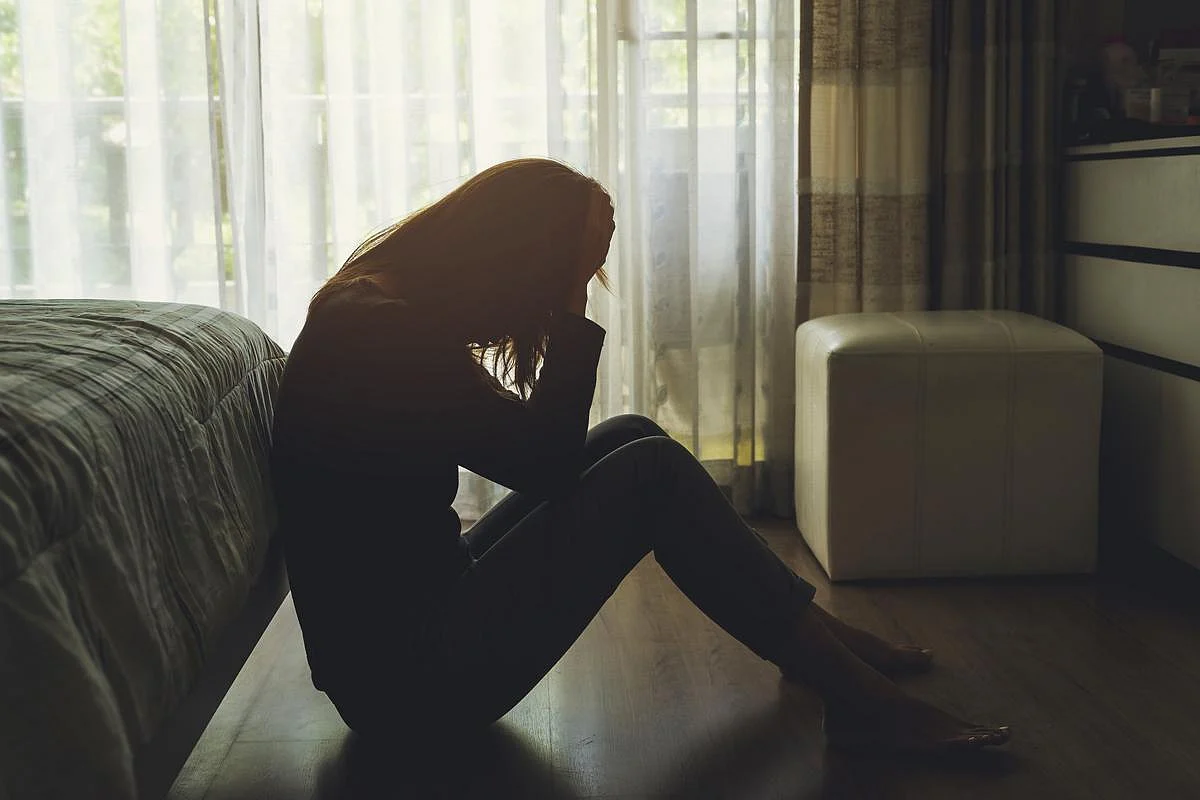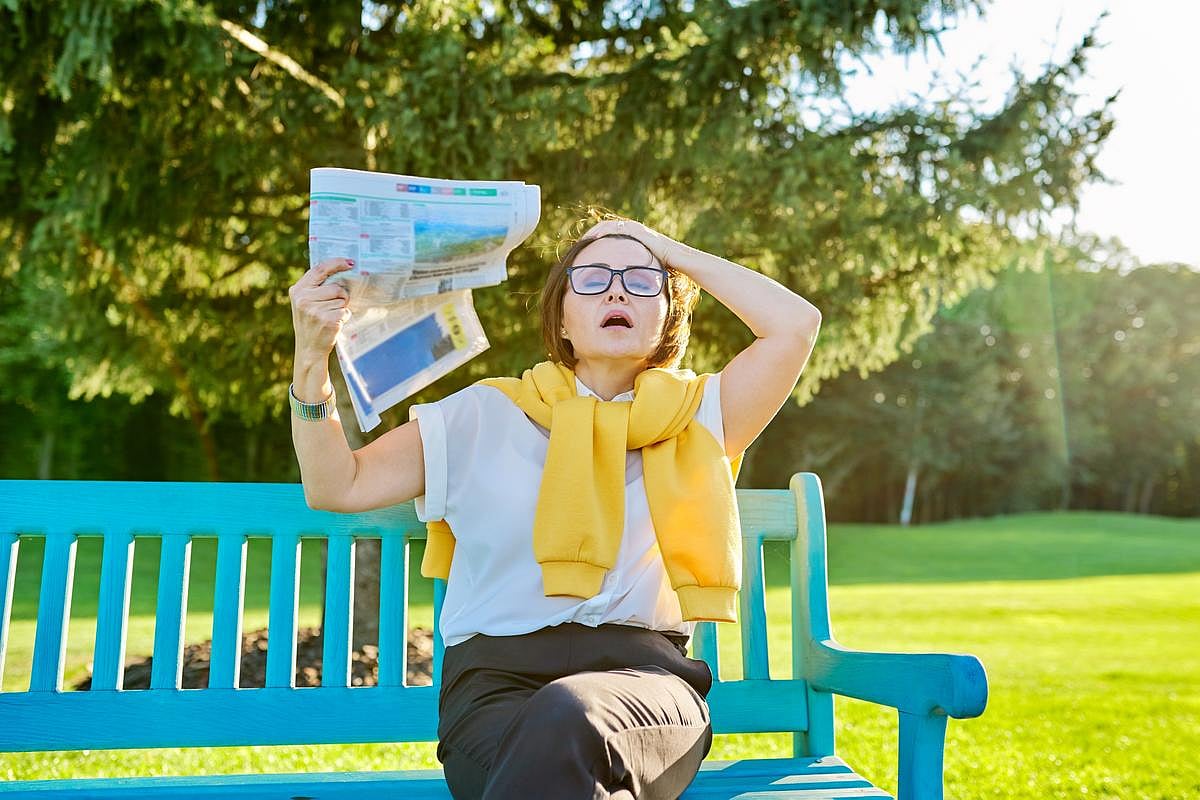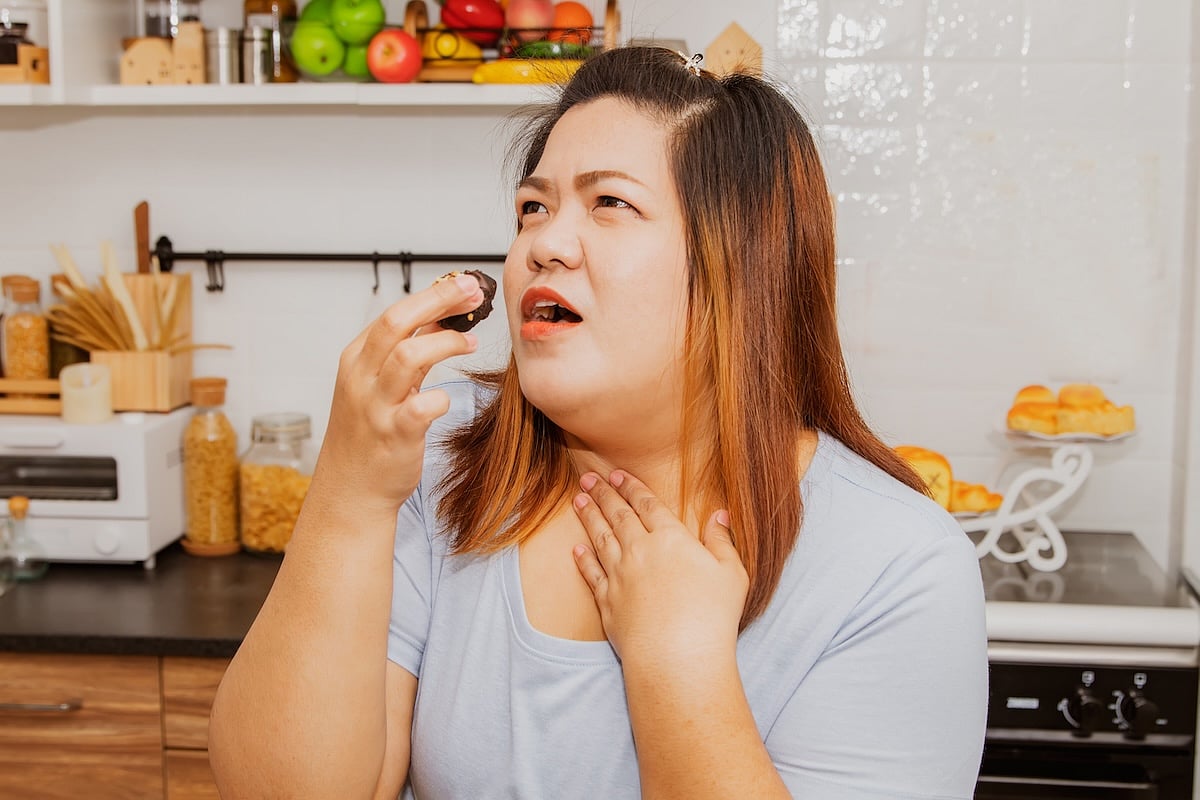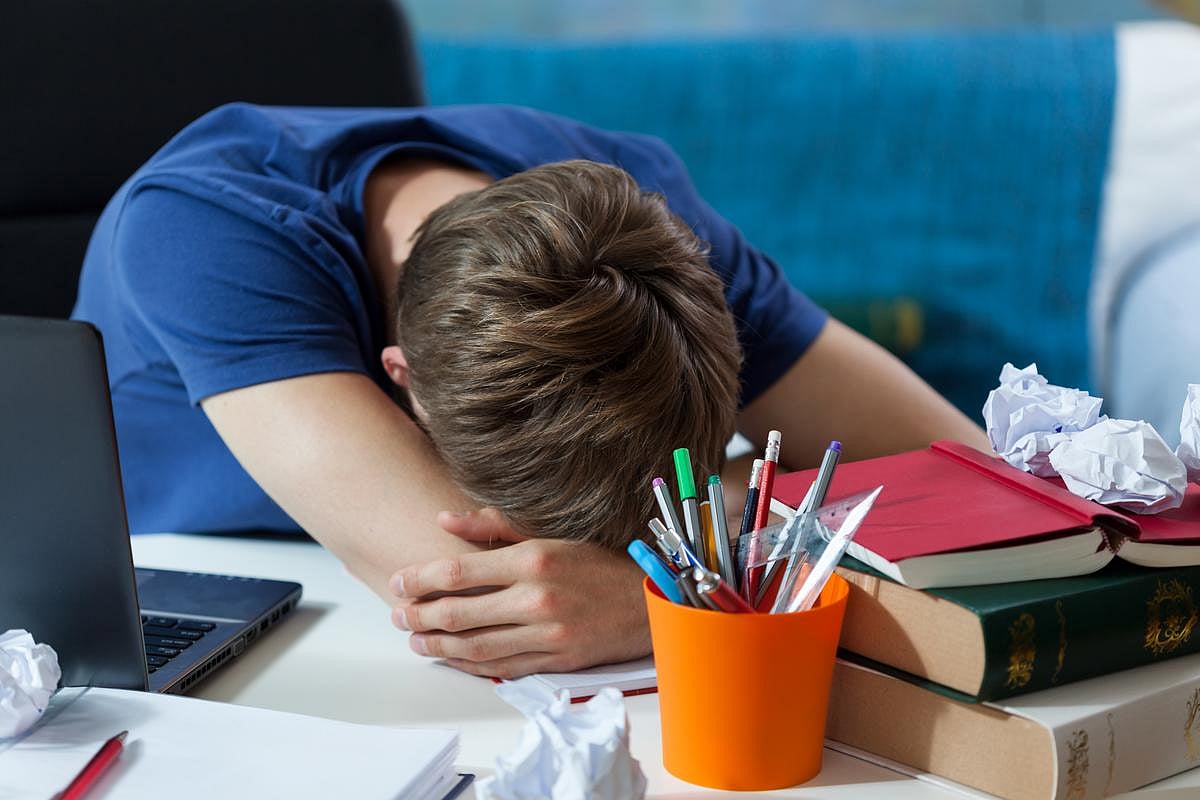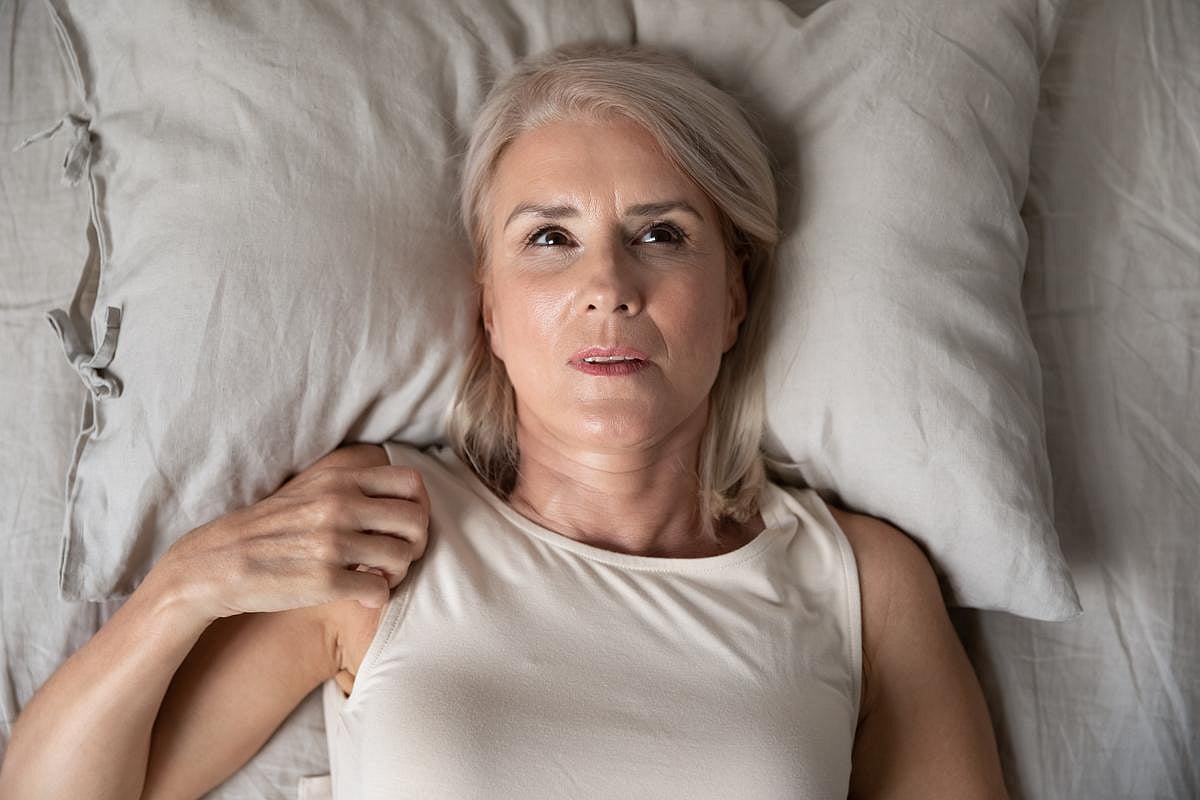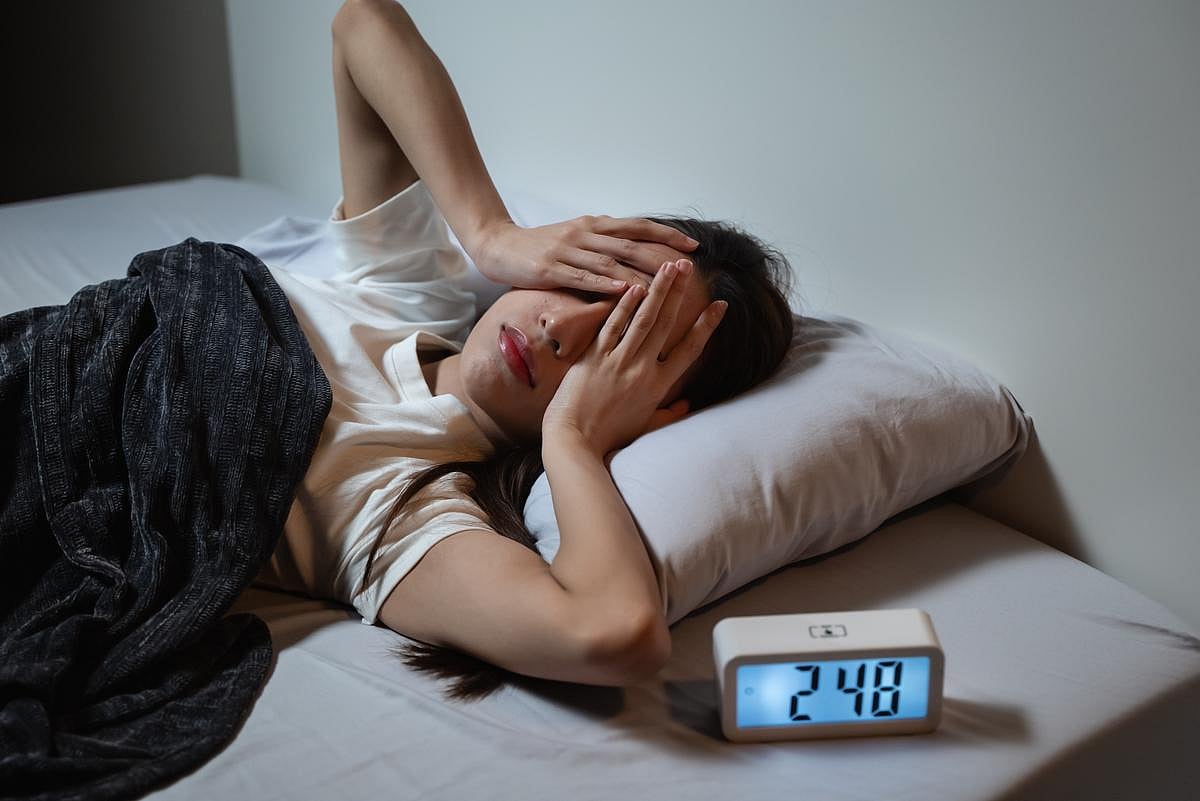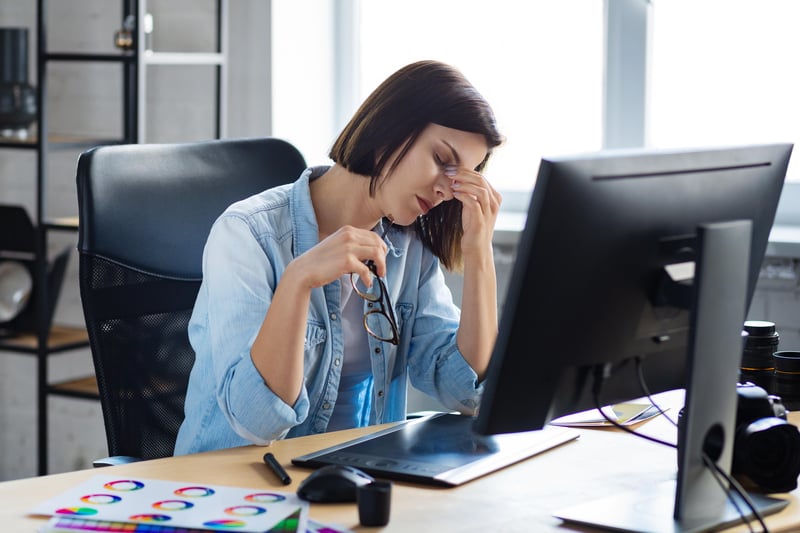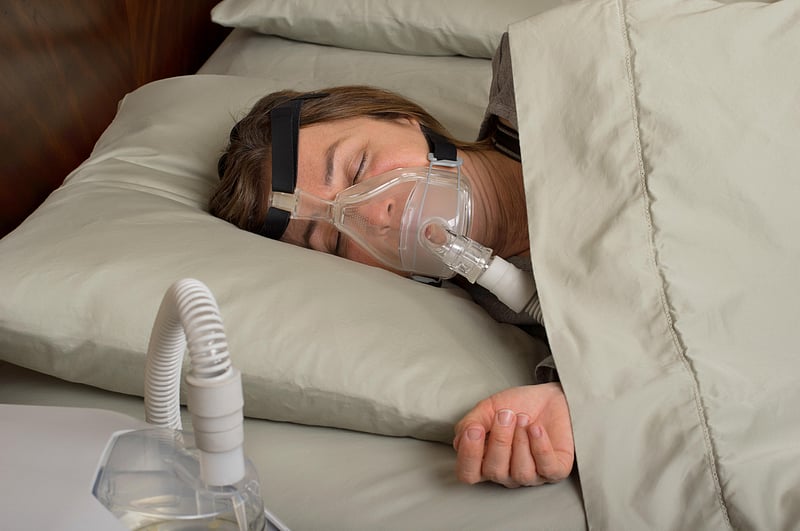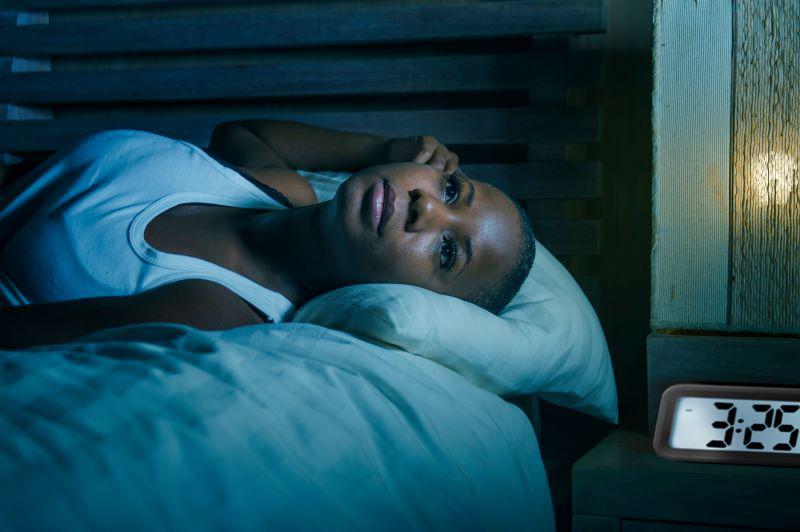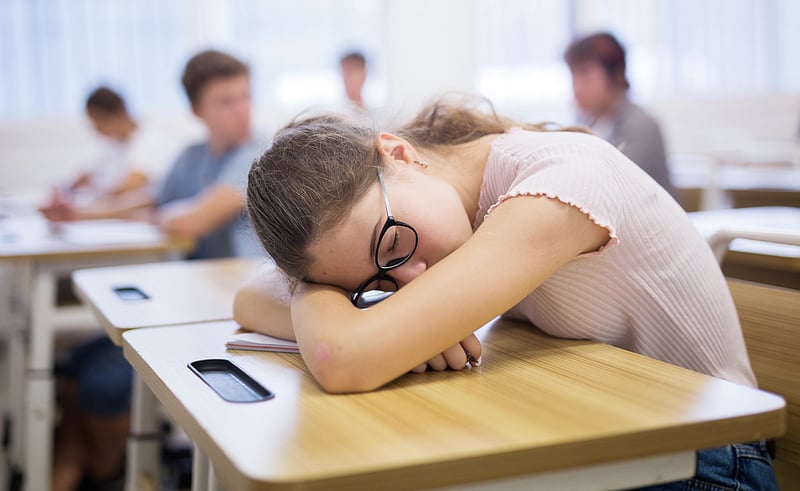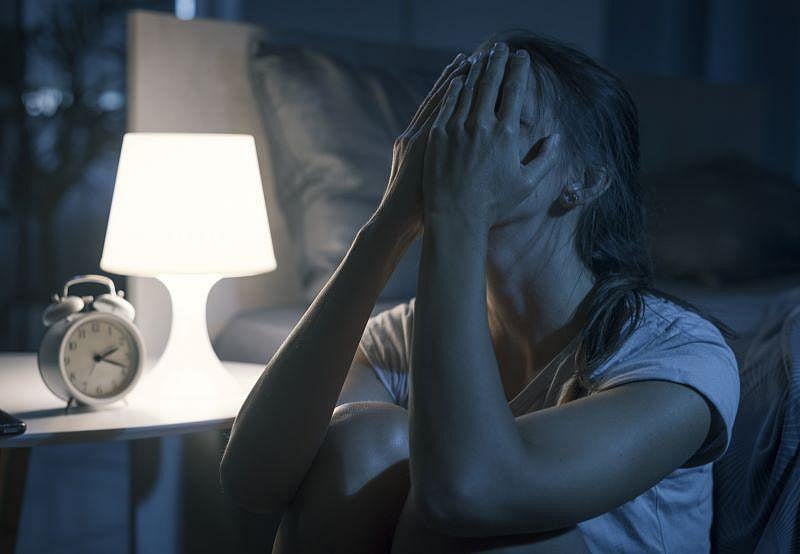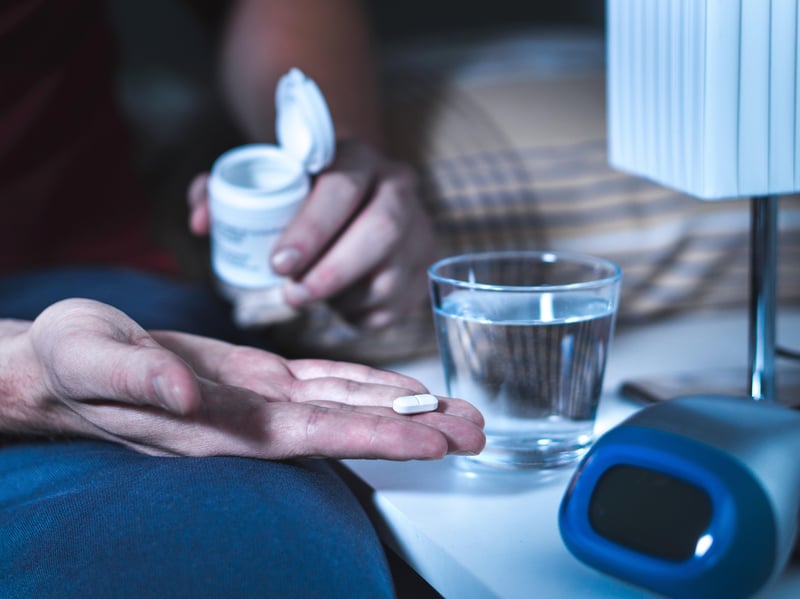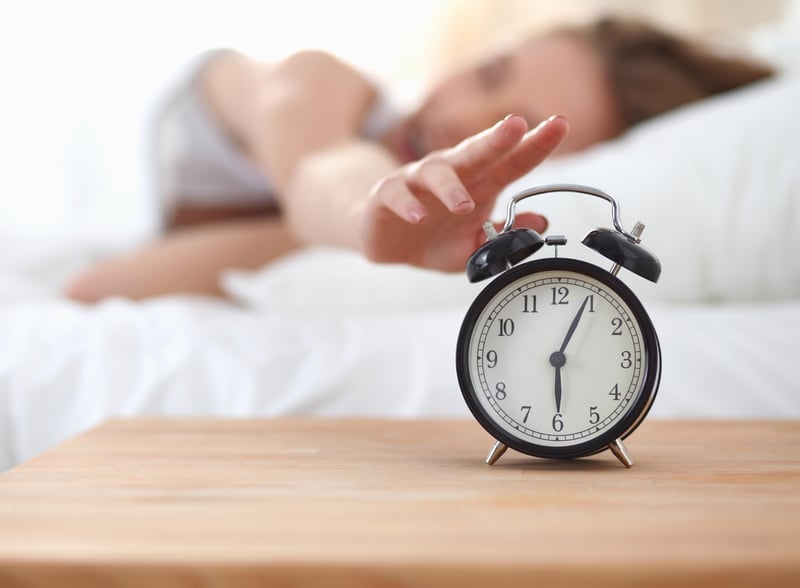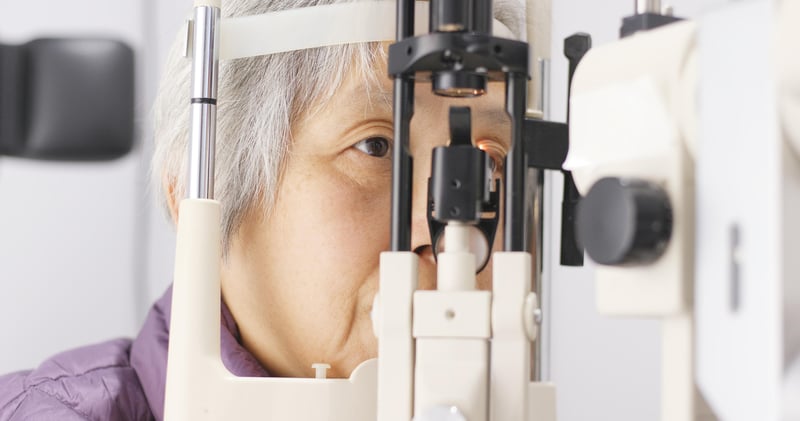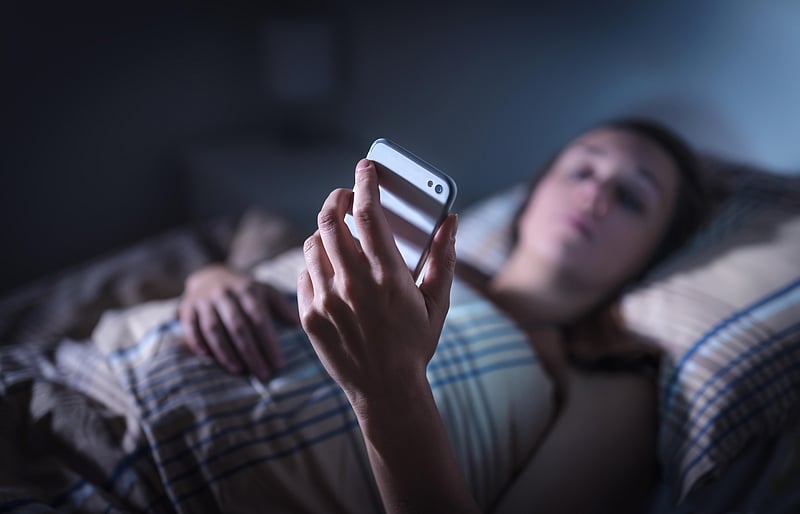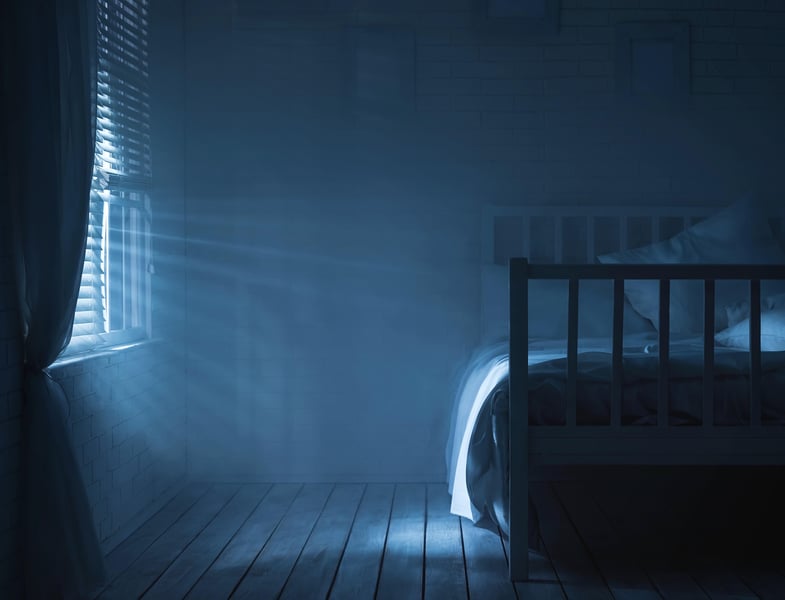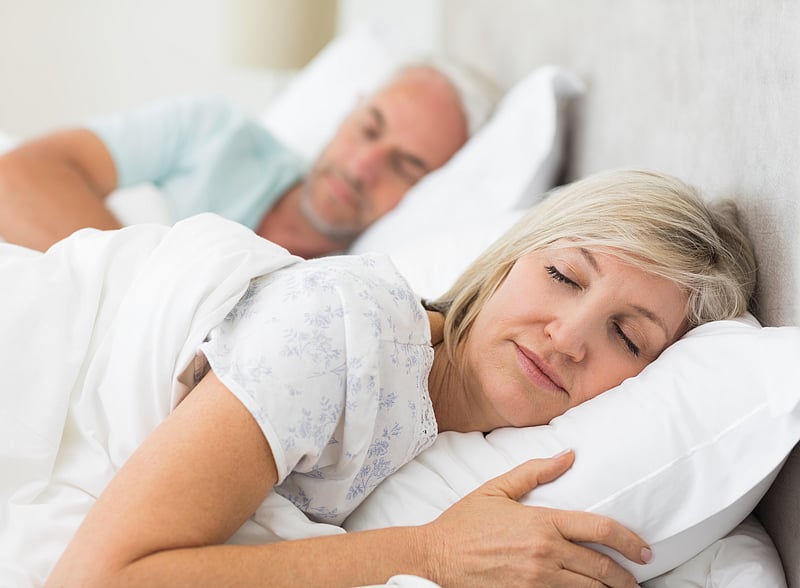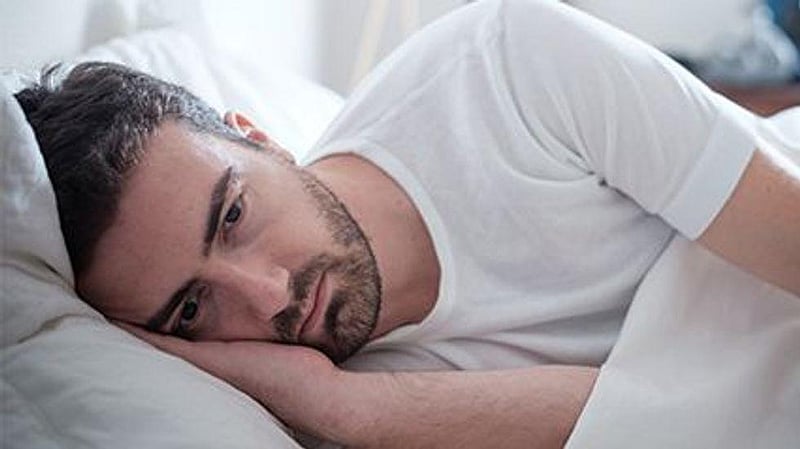Get Healthy!
Results for search "Insomnia".
Health Videos - 9
Health News Results - 55
Having trouble sleeping? New Chinese research suggests the age-old practice of tai chi might help.
The study found it equalled talk therapy in helping middle aged people with insomnia regain restful slumber in the long term.
“Our study supports tai chi as an alternative...
- Ernie Mundell HealthDay Reporter
- |
- December 1, 2025
- |
- Full Page
Folks using melatonin supplements as a sleep aid might be putting themselves at risk for future heart problems, a new study says.
Adults with insomnia who’d been using melatonin for a year or more had 90% higher odds of heart failure, researchers are scheduled to report Nov. 10 in New Orleans at a meeting of the American Heart Assoc...
- Dennis Thompson HealthDay Reporter
- |
- November 3, 2025
- |
- Full Page
Lousy sleep might be an early warning sign for suicide risk among teenagers, a new study says.
Teenagers who didn’t get enough sleep on school nights or suffered from interrupted sleep had a significantly higher risk of suicide, researchers reported Oct. 23 in the journal Sleep Advances.
...
- Dennis Thompson HealthDay Reporter
- |
- October 24, 2025
- |
- Full Page
Your beauty rest might be protecting your brain health as well, a new study says.
Seniors with chronic insomnia might experience a faster decline in their memory and thinking skills as they age, researchers reported today in the journal
Insomniacs have a much higher risk for depression if they have chronic inflammation, a new sleep lab experiment says.
Seniors with insomnia were three times as likely to report symptoms of depression if they’d been dosed with a substance that promotes inflammation, according to res...
- HealthDay Reporter
- Dennis Thompson
- |
- July 17, 2025
- |
- Full Page
Early symptoms of menopause will first appear when many women least expect them, a new Ohio State University poll reports.
Hot flashes, mood swings, weight gain and insomnia a...
- HealthDay Reporter
- Dennis Thompson
- |
- April 11, 2025
- |
- Full Page
Insomnia and vertigo are health conditions so well-known that movies have been named after them.
But only a quarter of Americans know about a condition that occurs even more often than vertigo or insomnia, called dysphagia, a new study says.
- HealthDay Reporter
- Dennis Thompson
- |
- April 2, 2025
- |
- Full Page
Teens who sleep fewer than 7.7 hours are more likely to have high blood pressure, a new study suggests.
Likewise, those suffering from both insomnia and a lack of sleep are five times more likely to have high blood pressure exceeding 140 systolic, according to research presented...
- HealthDay Reporter
- Dennis Thompson
- |
- March 7, 2025
- |
- Full Page
Seniors battling insomnia are best off picking up some dumbbells or doing some push-ups, a new evidence review suggests.
Resistance exercise, activities that make muscles work against an external force, appears to be the best means of improving sleep in older adults, researchers found.
- HealthDay Reporter
- Dennis Thompson
- |
- March 5, 2025
- |
- Full Page
MONDAY, Jan. 13, 2025 (HealthDay news) -- The sleep aid Ambien could be allowing toxic proteins to pollute the brain, potentially increasing a person’s risk of disorders like Alzheimer’s disease.
Drugs like the main ingredient in Ambien,
- HealthDay Reporter
- Dennis Thompson
- |
- January 13, 2025
- |
- Full Page
Ever woke in the night with your thoughts racing about work problems, co-worker disputes, or heavy career decisions?
Well, it’s more common than you think.
Job stress is robbing U.S. workers of the sleep they need, researchers reported in a study published Jan. 8 in the American Journal of Industrial Medicine...
- HealthDay Reporter
- Dennis Thompson
- |
- January 10, 2025
- |
- Full Page
Nearly 8 in 10 Americans go through the day in a fog that interferes with their jobs, their moods and their relationships.
Chalk it up to sleepiness: A new survey shows that 54% of Americans think they just don't get enough sleep.
"Daytime sleepiness is mo...
- HealthDay Reporter
- Carole Tanzer Miller
- |
- October 3, 2024
- |
- Full Page
Consistently bad sleep is linked to a person’s risk of developing type 2 diabetes, a new study shows.
Both too little and too much sleep is tied to diabetes risk, and swinging wildly between the two patterns of poor sleep reflects the most risk, researchers repo...
- HealthDay Reporter
- Dennis Thompson
- |
- July 23, 2024
- |
- Full Page
WEDNESDAY, July 17, 2024 (HeathDay News) -- Sleeping long hours one night but only a few hours the next can be unhealthy, with a new study finding "irregular" sleep patterns could be a risk factor for type 2 diabetes.
The results "underscore the importance of consistent sleep patterns as a strategy ...
- HealthDay Reporter
- Ernie Mundell
- |
- July 17, 2024
- |
- Full Page
Many couples may be painfully familiar with the scenario: One partner snores loudly all night long, so the other partner seeks better sleep in another bed.
Now, a new survey from the American Academy of Sleep Medicine (AASM) shows just how common the practice of "sleep divorce" is: 29% of Americans have opted to sleep in another bed in the same bedroom or in another space in the home to...
- HealthDay Reporter
- Robin Foster
- |
- July 17, 2024
- |
- Full Page
Exercise near bedtime won't necessarily wreck a person's sleep, a new study says.
Intense exercise is typically discouraged as bedtime approaches, since such activity can disturb sleep by increasing body temperature and heart rate, researchers said.
But short resistance exercise "a...
- HealthDay Reporter
- Dennis Thompson
- |
- July 17, 2024
- |
- Full Page
Millions of Americans struggle to fall or stay asleep, a new survey finds.
Some struggle more mightily than others: Roughly 12% of Americans polled said they have been diagnosed with chronic insomnia, the American Academy of Sleep Medicine (AASM) survey revealed.
Who was ...
- HealthDay Reporter
- Robin Foster
- |
- July 4, 2024
- |
- Full Page
The wee hours of the morning could be the most dangerous for someone on the brink of suicide or homicide, a new study shows.
There's a five-fold greater risk for suicide and an eight-fold greater risk for homicide between 2 a.m. and 3 a.m. for those awake in the still of the night, resea...
- HealthDay Reporter
- Dennis Thompson
- |
- May 31, 2024
- |
- Full Page
Folks who consistently work out two to three times a week are less likely to suffer from insomnia, a new study says.
That sort of long-term commitment to exercise also helps people get the recommended amount of sleep each night, according to findings published March 26 in the journal
Do you struggle to sleep during the week and play catch up on the weekend?
Do you toss and turn all night long and start the day in a fog?
Are you a napper?
Or are you among the lucky folks who have no problem getting enough shuteye?
Researchers at Penn State University report that most Americans fit one of these four descriptions -- and how people sleep is a good ...
- HealthDay Reporter
- Carole Tanzer Miller
- |
- March 14, 2024
- |
- Full Page
Ambien, Lunesta, Sonata: Millions of bleary-eyed Americans turn to this class of so-called "Z-drugs" to get restful sleep.
But how do these drugs work, and do they come with risks?
Experts at the U.S. Food and Drug Administration have issued an
Even mild cases of COVID can trigger insomnia in most people, a new study reports.
About three out of four people with mild COVID (76%) reported experiencing insomnia following their illness.
Further, nearly one in four (23%) said they'd experienced severe insomnia, according to results published Feb. 5 in the journal Frontiers in Public Health.
If you experience insomnia afte...
- HealthDay Reporter
- Dennis Thompson
- |
- February 5, 2024
- |
- Full Page
A new study from Australia tied some dangerous and unsettling issues to sleep disorders in young people.
The research found links to daytime drowsiness, mental health issues and motor vehicle accidents and noted that as many as 20% of younger people are affected by sleep disorders.
Workplace productivity losses were up to 40% greater among 22-year-olds with clinical sleep disorders ...
- HealthDay Reporter
- Cara Murez
- |
- July 17, 2023
- |
- Full Page
After many nights of tossing and turning, you might have more to worry about than just feeling exhausted and less sharp at work.
Insomnia symptoms -- trouble getting to sleep or staying asleep, or waking up too early -- are also associated with higher risk of stroke, according to new research from Virginia Commonwealth University.
And the risk is greater if you're younger than ...
- HealthDay Reporter
- Cara Murez
- |
- June 8, 2023
- |
- Full Page
Poor sleep brought on by sleep apnea may ultimately undermine the brain health of older men and women, new research suggests.
The concern stems from a new brain scan investigation that involved 140 sleep apnea patients.
"Sleep apnea is a medical condition in which patients ... stop breathing during sleep, which can affect their sleep quality by causing multiple arousals and dropping...
- HealthDay Reporter
- Alan Mozes
- |
- May 11, 2023
- |
- Full Page
Four out of 10 people who have lingering health issues after COVID-19 infection can count bothersome sleep problems among them.
About 41% of those with so-called long COVID have moderate to severe sleep issues, according to new research from the Cleveland Clinic in Ohio. Black patients are three times more likely to develop these sleep disturbances.
"Sleep difficulties and fatigue ...
- HealthDay Reporter
- Cara Murez
- |
- April 7, 2023
- |
- Full Page
A good night's sleep is important for everyone, and it may be especially sage advice for adults with a genetic susceptibility to asthma, a new study says.
Someone with poor sleep quality and a genetic link to asthma may double their chances of being diagnosed with the respiratory condition, researchers said. But they found a healthy sleep pattern was linked to lower risk, according to a r...
- HealthDay Reporter
- Cara Murez
- |
- April 4, 2023
- |
- Full Page
In yet another sign of the stress that can haunt gay, lesbian and bisexual youth, a new study finds that compared with their straight peers, they are twice as likely to report trouble falling asleep or staying asleep.
Depression and family conflict may be contributing to sleep issues in young LGBTQ people, the researchers noted.
"Young people who identify as lesbian, gay or bisexua...
- HealthDay Reporter
- Cara Murez
- |
- March 28, 2023
- |
- Full Page
While thinking declines can be a common symptom of multiple sclerosis in women, new research suggests sleep, or lack of it, could be making matters worse.
"Sleep disorders have gained substantial recognition for their role in cognitive [thinking] decline, which affects up to 70% of people with multiple sclerosis,"explained study author
Tossing and turning, waking up frequently or lying awake for hours is no laughing matter.
According to the National Sleep Foundation, the average adult should aim for seven to nine hours of sleep each night. Why? The
A new poll on sleep and mental health has found that more than 90% of adults who reported they get good sleep were also free of depressive symptoms.
In its annual poll, the nonprofit National Sleep Foundation (NSF) focused this year on the impact of sleep on mental health because of the current mental health crisis in the United States.
"In the day-to-day execution of our sleep he...
- HealthDay Reporter
- Cara Murez
- |
- March 9, 2023
- |
- Full Page
When people struggle to fall asleep, it's no surprise they seek solutions.
Options can range from prescription medications to sleep therapy, good habits and an abundance of supplements.
Taking magnesium for sleep is something some say has real benefits, but does it really?
It's not entirely certain, but the mineral serves a variety of other important functions, so it just m...
- HealthDay Reporter
- Cara Murez
- |
- March 8, 2023
- |
- Full Page
You toss, you turn, you can't fall asleep.
Certainly, there are sleep medications that can be prescribed by a doctor. And with some investment of time, cognitive-behavioral therapy for insomnia is considered to be an effective option.
Yet, there are also a lot of healthy s...
- HealthDay Reporter
- Cara Murez
- |
- March 3, 2023
- |
- Full Page
Folks who have trouble falling or staying asleep may be more likely to have a heart attack.
This is the main takeaway from new research linking insomnia to heart woes. Specifically, people with insomnia were 69% more likely to have a heart attack than folks without the sleep disorder. These rates were even higher among people with both diabetes and insomnia, the study showed.
"Insom...
- HealthDay Reporter
- Denise Mann
- |
- February 27, 2023
- |
- Full Page
Getting good sleep may have long-term benefits -- even extending your life span, a new study suggests.
Researchers found that young people with better sleep habits were incrementally less likely to die early. About 8% of deaths from any cause could be attributed to poor sleep patterns.
- HealthDay Reporter
- Cara Murez
- |
- February 23, 2023
- |
- Full Page
Nearly 20% of American adults use a drug to help them sleep, either occasionally or regularly, health officials reported Wednesday.
Sleep medications, sold both over-the-counter and by prescription, are a common treatment for sleep problems, said senior report author Lindsey Black
- HealthDay Reporter
- Steven Reinberg
- |
- January 25, 2023
- |
- Full Page
Finally, more than two years into the pandemic, Americans are sleeping better.
A new survey from the American Academy of Sleep Medicine (AASM) found that 31% of people have had insomnia since the pandemic began. That was much lower -- a 25% decrease -- compared to the 2...
- HealthDay Reporter
- Cara Murez
- |
- December 5, 2022
- |
- Full Page
Transgender youth are more likely than others to experience sleep disorders such as insomnia and sleep apnea, and researchers now recommend these young people be screened for sleep problems.
"Transgender and gender-nonconforming identity may precede mental health disorders, and both influence insomnia diagnosis,"said study co-author
Poor sleep may be linked to glaucoma, a leading cause of blindness, new research suggests.
The study drew on a database of more than 400,000 people to explore links between sleep and vision loss.
Glaucoma is marked by progressive loss of light-sensitive cells in the eye and optic nerve dama...
- HealthDay Reporter
- Cara Murez
- |
- November 2, 2022
- |
- Full Page
Many teens look at screens at bedtime, but some apps are more likely to keep them awake than others, leading to sleep problems.
That's the upshot of a new study in which researchers found YouTube fans experienced consistent and negative effects on sleep. Surprisingly, traditional TV was associated with earlier bedtim...
- HealthDay Reporter
- Cara Murez
- |
- September 13, 2022
- |
- Full Page
Fewer Americans are turning to sleep medications to fight insomnia.
After a dramatic rise in prescriptions for drugs like Ambien, the trend has ebbed, according to a new study, and fewer doctors are prescribing sleep medications
- HealthDay Reporter
- Steven Reinberg
- |
- August 24, 2022
- |
- Full Page
If you struggle to fall asleep at night, you are not alone.
About 28% of Americans say insomnia is taking a toll on their daily lives, and about 64% say they take sleep aids to help them fall asleep or stay asleep.
Keeping your bedroom dark not only helps you get a good night's sleep, but may significantly lower your odds of developing three major health problems, a new study suggests.
Older men and women who used night lights, or left their TV, smartphone or tablet on in the room were more likely to be obese, and have high blood pressure and diabetes, compared with adults who were not exposed to an...
- HealthDay Reporter
- Steven Reinberg
- |
- June 22, 2022
- |
- Full Page
You might think that having the whole bed to yourself would leave you feeling more refreshed in the morning than sleeping with someone who might toss, turn or snore.
Yet, a new study suggests that adults who share their beds with a partner have less severe insomnia, less fatigue and more sleep ...
- HealthDay Reporter
- Cara Murez
- |
- June 10, 2022
- |
- Full Page
Insomnia is widespread in heart disease patients and significantly boosts the risk of heart attack, stroke or other major heart event, a new study says.
The findings show the need to check for and treat sleep problems in heart disease patients, according to researchers.
"Our study indicates that insomnia is common in heart disease patients and is linked with subsequent cardiovascula...
- HealthDay Reporter
- Robert Preidt
- |
- April 8, 2022
- |
- Full Page
Young children who struggle with insomnia face a very high risk for more of the same as young adults, a new study warns.
Investigators found that 43% of children who suffer from insomnia between the ages of 5 and 12 continue to do so when they hit their 20s and 30s.
And that amounts to a nea...
- HealthDay Reporter
- |
- February 17, 2022
- |
- Full Page
Many Americans are working hard to get a good night's sleep, and feeling the effects when they miss the mark.
About 32% of people feel more tired these days than they did before the pandemic began, according to the results of a new HealthDay/Harris Poll survey. About 28% says they're getting less sleep than they did before the pandemic.
"During the peak of the pandemic with...
- HealthDay Reporter
- |
- February 7, 2022
- |
- Full Page
If the pandemic is causing you to lose sleep at night, you're not alone.
About 56% of Americans say they have what experts have dubbed "COVID-somnia," an increase in sleep disturbances.
Of people reporting these disturbances, 57% say they're having trouble falling or staying asleep. About 46% are sleeping less...
- HealthDay Reporter
- Cara Murez
- |
- January 3, 2022
- |
- Full Page
Older adults have a higher risk of delirium after hip and knee surgery if they're taking anxiety, depression or insomnia drugs, researchers say.
"Our findings show that different classes of medicine are riskier than others when it comes to causing delirium after surgery, and the older the patients are, the greater the risk," said lead study author Gizat Kassie. He is a postdoctoral resear...
- HealthDay Reporter
- Robert Preidt
- |
- December 13, 2021
- |
- Full Page
Many folks turn to pot to help them relax and get a good night's sleep, but new research finds the practice may do the exact opposite.
"I think [the results] were somewhat surprising because, in our mind, anecdotally cannabis seems to help with sleep, but "¦ the evidence to support that notion is just not there yet," said senior study author Dr. Karim Ladha. He is an anesthesiologist and...
- HealthDay Reporter
- Cara Murez
- |
- December 7, 2021
- |
- Full Page









